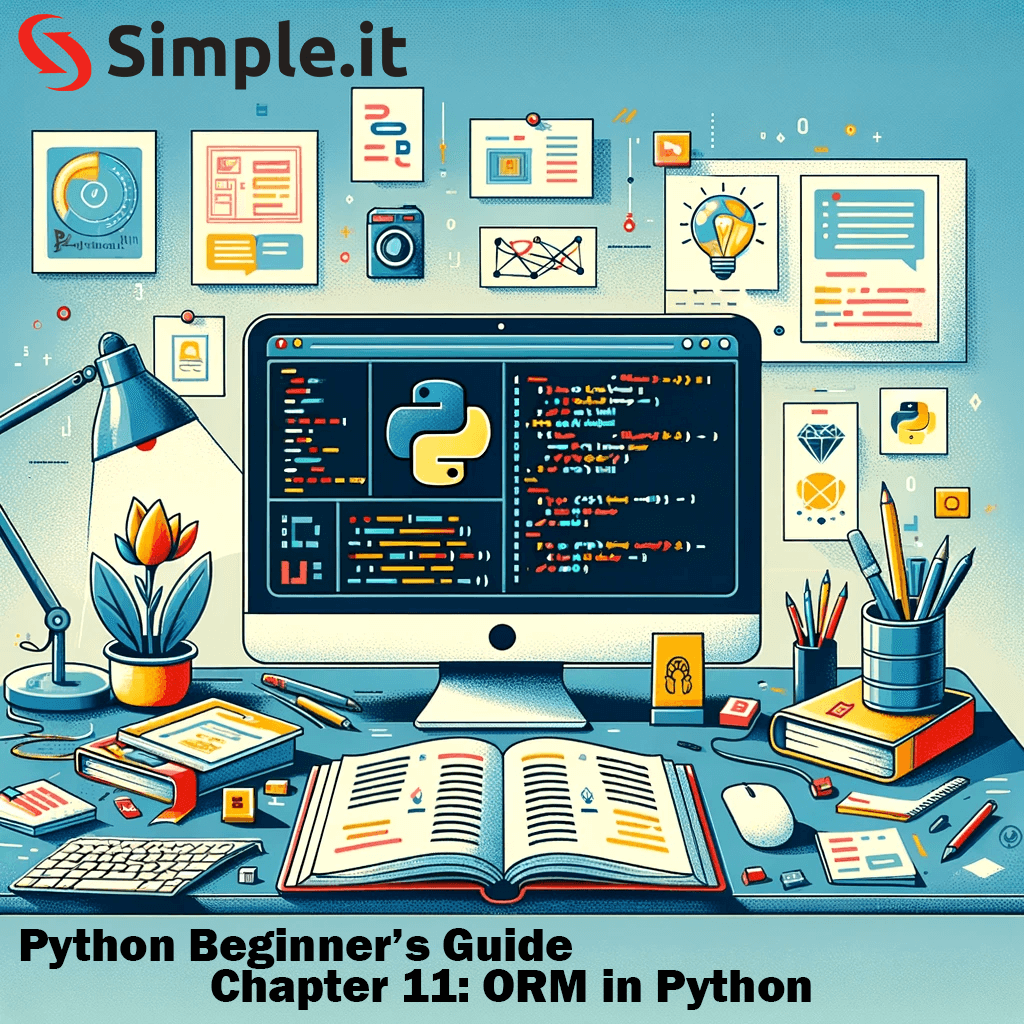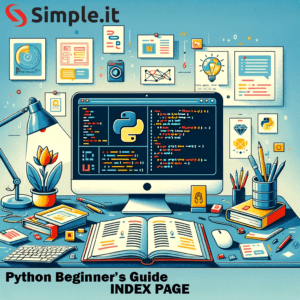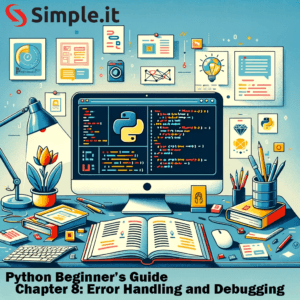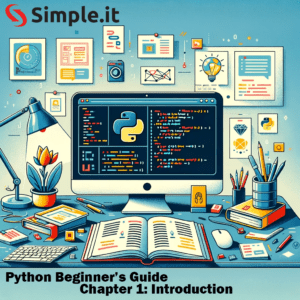For many Python developers, especially those dealing with web applications or complex data models, Object-Relational Mapping (ORM) is a vital tool. ORM in Python allows for a more intuitive interaction with databases, transforming data between incompatible systems into an easily manipulable object-oriented format. This lesson will delve into the world of ORM in Python, focusing on popular tools like SQLAlchemy and Django ORM.
ORM in Python
Understanding ORM in Python
Object-Relational Mapping is a technique that converts data between relational databases and object-oriented programming languages. The main advantage of using an ORM is that it allows you to work with database entities as if they were normal Python objects, abstracting away the complexities of SQL queries and database schema.
The Benefits of Using ORM
- Simplified Database Operations: With ORM, the need for writing complex SQL queries is reduced. You can perform database operations with intuitive Python code.
- Increased Productivity: ORM can speed up the development process by handling various database tasks automatically.
- Improved Code Maintainability: ORM promotes cleaner, more readable code which is easier to update and maintain.
Comparing ORM in Python: SQLAlchemy and Django
When comparing SQLAlchemy and Django ORM, it’s important to understand that they are both Object-Relational Mapping (ORM) tools in Python, but they serve different purposes and are used in different contexts. Here’s a detailed look at the differences between SQLAlchemy and Django ORM:
SQLAlchemy: Flexibility and Fine-grained Control
- Purpose and Design: SQLAlchemy is a SQL toolkit and ORM framework for Python. It is designed for high flexibility and detailed control over the database operations. It’s not tied to any particular framework and can be used with any Python application.
- Complexity and Learning Curve: It has a steeper learning curve due to its complexity and the level of control it offers. SQLAlchemy is suitable for developers who need to write complex queries and need more control over how their database operations are handled.
- Usage: SQLAlchemy allows you to work both with high-level ORM operations and low-level SQL expressions. It’s more like a toolkit that provides all the nuts and bolts to interact with databases in whichever way you prefer.
- Customization and Integration: It can be integrated into any Python application, regardless of the framework being used, making it a more versatile choice for a variety of projects.
Django ORM: Ease of Use and Integration with Django
- Purpose and Design: Django ORM comes as part of the Django web framework. It is designed to work seamlessly with Django’s MVC architecture, making it an excellent choice for developers working on Django-based web applications.
- Ease of Use: Django ORM is known for its simplicity and ease of use, especially for developers already familiar with Django. It abstracts much of the database operations, allowing developers to interact with databases using Python objects.
- Usage: It’s tightly integrated with Django models, and it provides a high-level abstraction to perform database operations without needing to write raw SQL queries. This integration also extends to other parts of the framework, like forms and admin interfaces.
- Customization and Integration: While Django ORM works seamlessly within the Django ecosystem, its use outside of Django is not practical. It is best suited for projects that are fully committed to using Django as their web framework.
The choice between SQLAlchemy and Django ORM depends largely on your specific project requirements:
- Choose SQLAlchemy if you need a standalone ORM tool with a high degree of flexibility and control, and if you are not necessarily working with Django.
- Choose Django ORM if you are developing a web application with Django and want an ORM that integrates smoothly with that framework, offering ease of use and rapid development.
Both tools are powerful in their own right and can greatly enhance the efficiency and quality of database operations in Python applications.
SQLAlchemy: A Comprehensive Python ORM
SQLAlchemy is one of the most feature-rich and flexible ORMs available in the Python ecosystem.
- Key Features:
- Provides a full suite of well-known enterprise-level persistence patterns.
- Detailed SQL expression language.
- High-level object-oriented API.
- Getting Started with SQLAlchemy:
from sqlalchemy import create_engine, Column, Integer, String
from sqlalchemy.ext.declarative import declarative_base
from sqlalchemy.orm import sessionmaker
# Define the SQLite engine
engine = create_engine('sqlite:///example.db', echo=True)
Base = declarative_base()
# Define a class-based model
class Student(Base):
__tablename__ = 'students'
id = Column(Integer, primary_key=True)
name = Column(String)
age = Column(Integer)
# Create tables in the database
Base.metadata.create_all(engine)
Session = sessionmaker(bind=engine)
session = Session()
# Adding a new record
new_student = Student(name='John Doe', age=22)
session.add(new_student)
session.commit()Django ORM: Built for Web Development
Django ORM comes as part of the Django web framework. It’s designed to work seamlessly with Django’s model structure.
- Key Features:
- Tightly integrated with Django’s models.
- Automatic schema generation.
- Admin interface for CRUD operations.
- Example Usage of Django ORM:
Django ORM is used by defining models in your Django application. The framework handles the SQL part for you.
from django.db import models
class Student(models.Model):
name = models.CharField(max_length=100)
age = models.IntegerField()
# Querying records
students = Student.objects.filter(age=22)Resources and Further Learning
- To explore more about SQLAlchemy, visit the SQLAlchemy documentation.
- For Django ORM, the official Django documentation is a great resource.
- Our Python Beginner’s Guide offers a comprehensive introduction to Python and its interaction with databases.
- Check out the programming section of our blog for more insights and tutorials.
Conclusion
Utilizing ORM in Python is a game-changer for developers working with databases. It not only simplifies the process of database management but also aligns well with the object-oriented paradigm of Python. Whether you choose SQLAlchemy for its flexibility or Django ORM for its integration with the Django web framework, both tools are powerful allies in efficient and effective database management.



